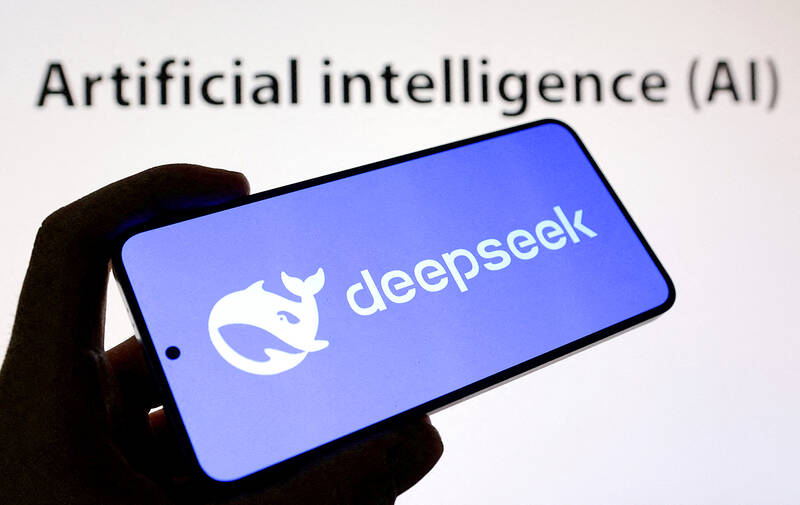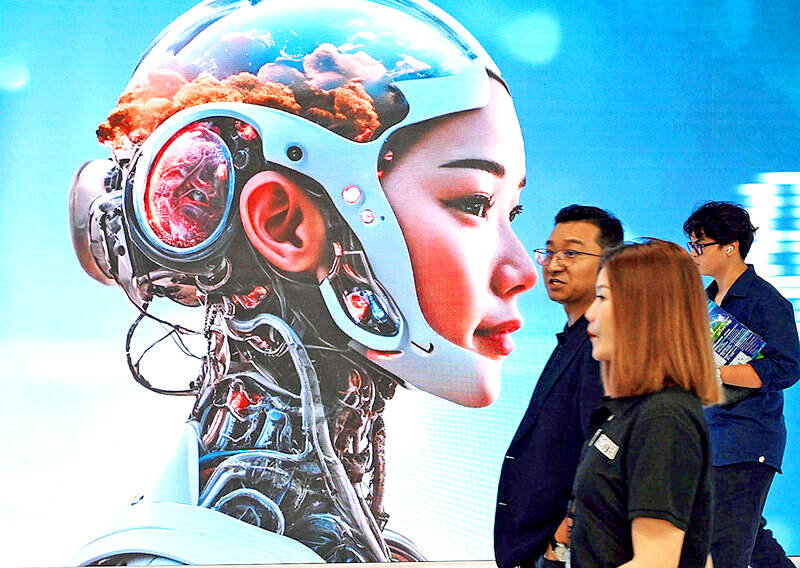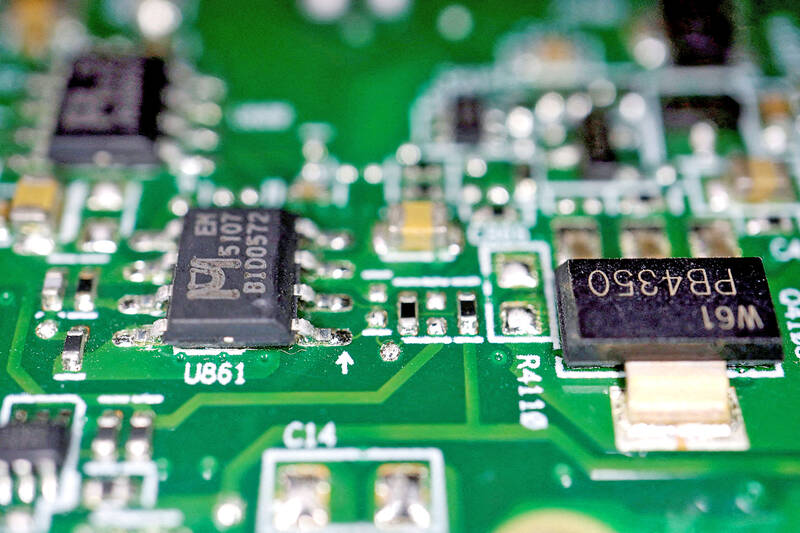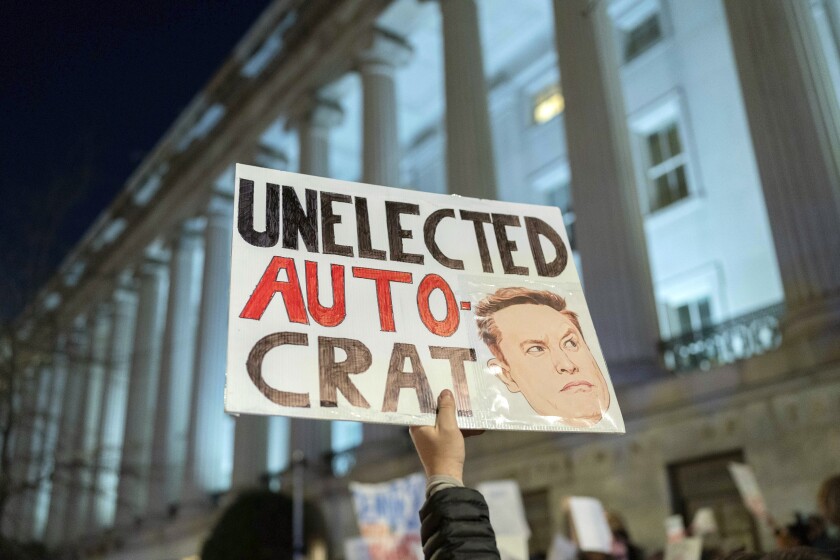South Korean ministries and police yesterday said that they were blocking DeepSeek’s (深度求索) access to their computers, after the Chinese artificial intelligence (AI) start-up did not respond to a data watchdog request about how it manages user information.
DeepSeek launched its R1 chatbot last month, saying that it matches the capacity of AI pacesetters in the US for a fraction of the investment, upending the global industry.
South Korea, along with nations such as France and Italy, have asked questions about DeepSeek’s data practices, submitting a written request for information about how the company handles user information, but after DeepSeek failed to respond to an inquiry from South Korea’s data watchdog, ministries yesterday said that they were taking steps to limit access to prevent potential leaks of sensitive information through generative AI services.

Photo: Reuters
“Blocking measures for DeepSeek have been implemented specifically for military work-related PCs with Internet,” a South Korean Ministry of National Defense official said.
The ministry, which oversees active-duty troops deployed against North Korea, has also “reiterated the security precautions regarding the use of generative AI for each unit and soldier, taking into account security and technical concerns,” it said.
South Korean police said that access to DeepSeek had also been blocked, while the South Korean Ministry of Trade, Industry and Energy said that access had been temporarily restricted on all its PCs.
The trade, finance, unification and foreign ministries also all said they had blocked the app or had taken unspecified measures.
Italy last week launched an investigation into DeepSeek’s R1 model and blocked it from processing Italian users’ data.
Australia has also banned DeepSeek from all government devices on the advice of security agencies.
Kim Jong-hwa, a professor at Cheju Halla University’s AI department, said that amid the growing rivalry between the US and China, he suspected “political factors” could be influencing the reaction to DeepSeek, but that the bans were still justified.
“From a technical standpoint, AI models like ChatGPT also face numerous security-related issues that have not yet been fully addressed,” Kim said. “Given that China operates under a communist regime, I question whether they consider security issues as much as OpenAI does when developing innovative technologies. We cannot currently assess how much attention has been paid to security concerns by DeepSeek when developing its chatbot. Therefore, I believe that taking proactive measures is not too excessive.”
Beijing yesterday said that the Chinese government would “never require enterprises or individuals to illegally collect or store data.”
“China has always opposed the generalization of national security, and the politicization of economic, trade and technological issues,” Chinese Ministry of Foreign Affairs spokesman Guo Jiakun (郭嘉昆) said.
Beijing would also “firmly safeguard the legitimate rights and interests of Chinese enterprises,” Guo added.
DeepSeek says it uses less-advanced H800 chips — permitted for sale to China until 2023 under US export controls — to power its large learning model.
South Korean chip giants Samsung Electronics Co and SK Hynix Inc are key suppliers of advanced chips used in AI servers.
The South Korean government on Wednesday announced an additional 34 trillion won (US$23.4 billion) investment in semiconductors and high-tech industries, with the nation’s acting president urging technology companies to stay flexible.
#Korean #authorities #block #DeepSeek #access












Leave a Reply